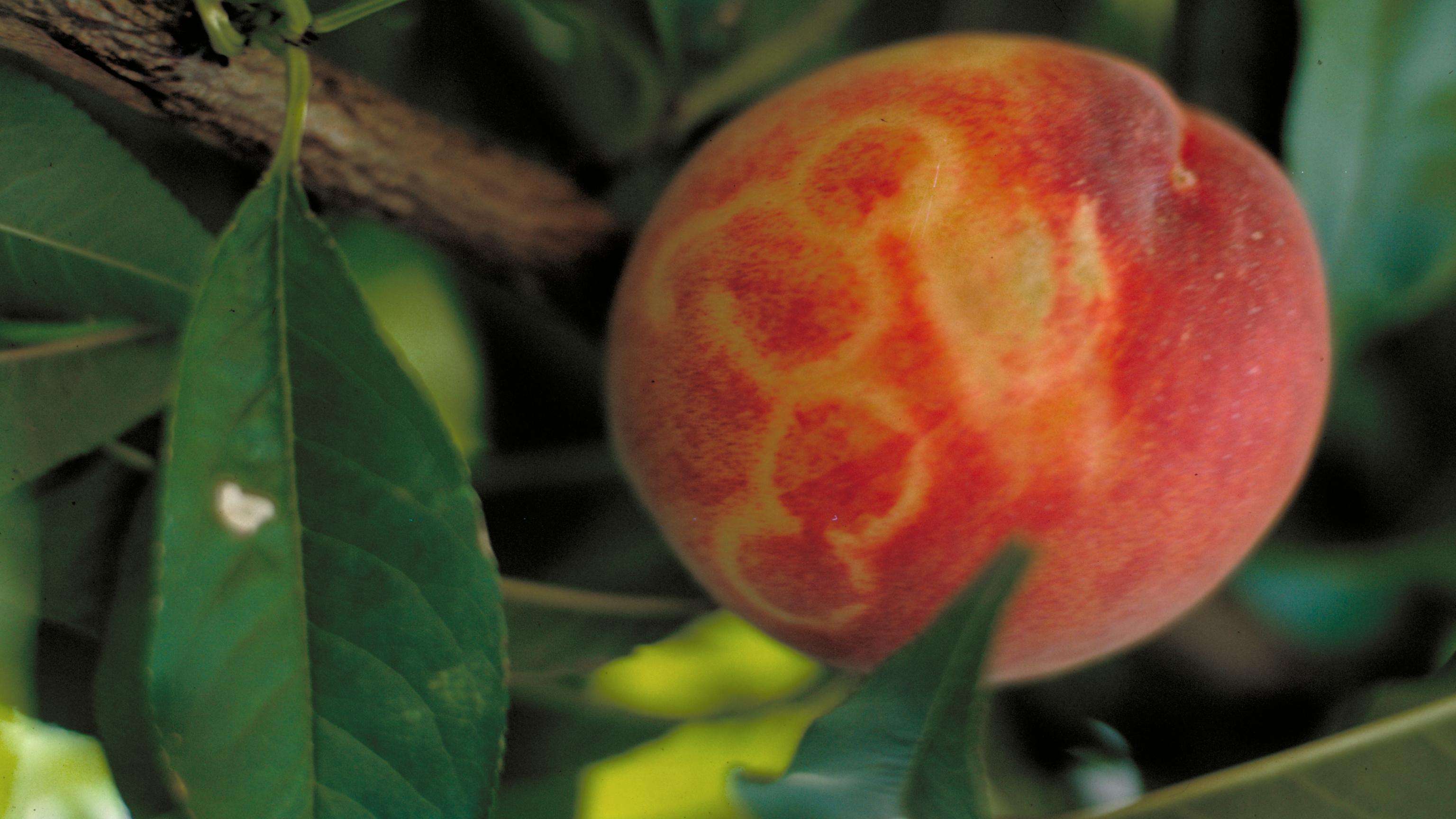Plum Pox

European and Mediterranean Plant Protection Organization Archive, Bugwood.org
Plum pox virus (PPV), also called Sharka, is the most devastating viral disease of stone fruit worldwide. It affects Prunus spp., including peaches, nectarines, apricots, plums, almonds, cherries, and some ornamental Prunus cultivars.
PPV infection weakens trees, severely reducing fruit production and marketability. Aphids and people moving infected nursery stock spread the disease long distances.
The disease was first detected in North America in 1999. Twenty years later, APHIS declared PPV eradicated from the United States.
- Severely deformed fruit
- Rings or spots on fruit skin or leaves
- Brownish depressions and grooves on the surface of fruit
- Premature fruit drop
- Reddish or brownish colored flesh
- Green peach aphids, small sap-sucking insects that carry the disease
It may take several years for symptoms to appear. If you suspect your plants are infected, contact your State department of agriculture or State plant health director. The only way to confirm PPV is to test suspect plant material using a specialized molecular diagnostic test.
PPV prevention measures include early detection field surveys and the use of certified nursery stock.
Report Plant Pests and Diseases
Have you seen this pest or signs of pest damage? Immediately report your findings.
Find your State plant regulatory official
Find your State plant health director
Controlling Plum Pox
The United States has been plum pox-free since 2019, and we're looking to keep it that way. To spearhead prevention efforts, APHIS has implemented a strong safeguarding program, that includes:
- Monitoring for the disease in stone fruit-producing States
- Science-based import regulations to prevent the disease’s reentry via imported trees and propagative material
- Continued cooperation with Canada to help prevent virus incursions
View Federal Regulations 7 CFR 301.74
When a quarantine is in place, the United States regulates trees, seedlings, root stock, budwood, branches, twigs, and leaves of host Prunus spp. but not seeds or fruit. If a seed-borne strain of PPV emerges, APHIS will revisit the list of PPV regulated articles.
- Regulated Areas (127.51 KB)
- Regulated Articles (157.67 KB)

